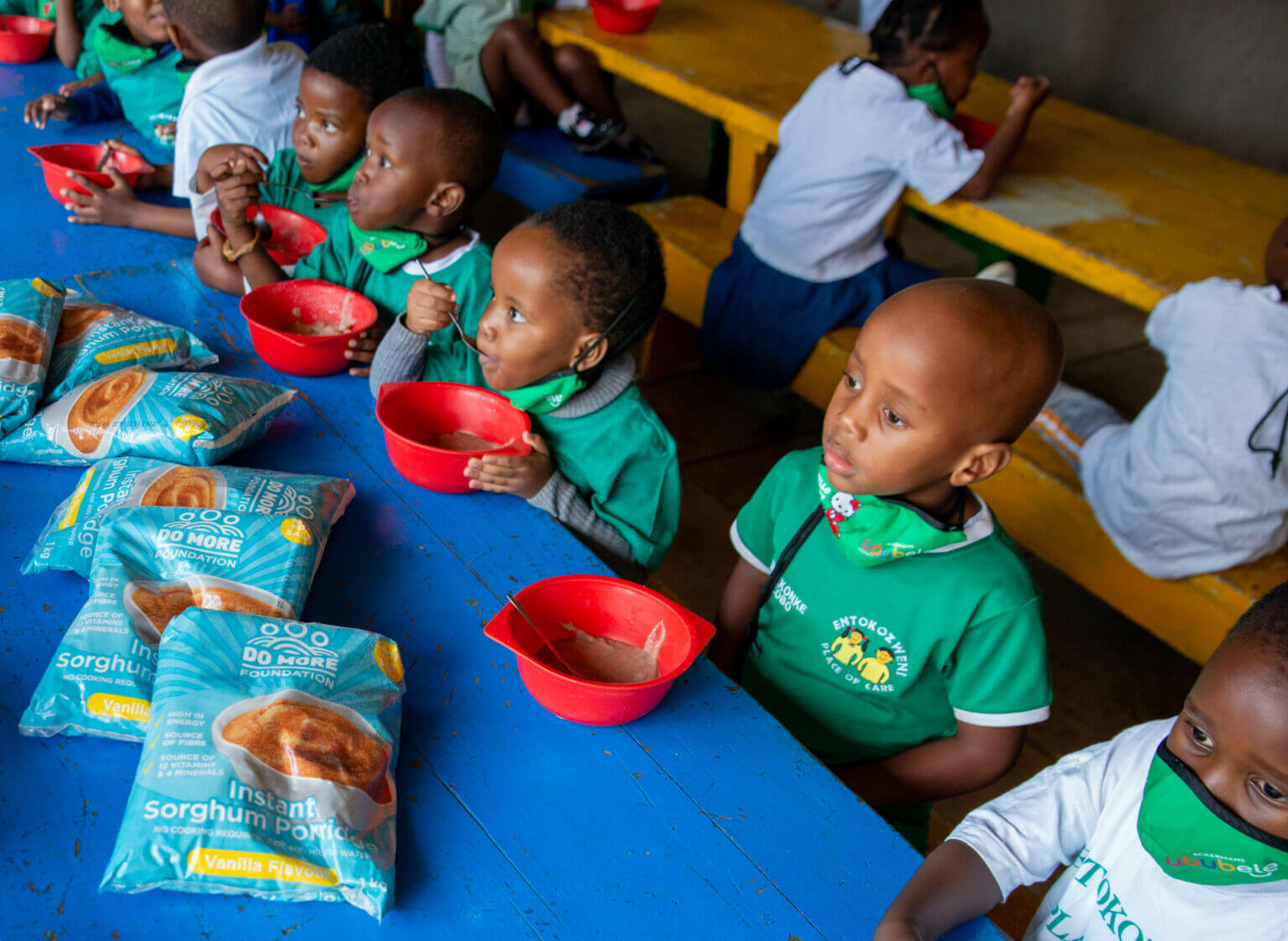EARLY CHILDHOOD DEVELOPMENT (ECD) CENTRES AS HUBS FOR NUTRITION
17 Oct 2022

Establishing and capacitating Early Childhood Development (ECD) centres as hubs for nutrition could reduce malnutrition and allow children to flourish.
Poor nutrition has a substantial negative impact on a child’s brain development before the age of five, depriving them of the ability to reach their full potential, thrive in school, and contribute to society[1]. Dr. Ronaasen, ECD specialist and National Programmes Lead for the DO MORE FOUNDATION, has outlined the urgency of capacitating ECD centres in her recently published Ph.D. research if, to the nasty evils of poverty, hunger, food insecurity, and malnutrition that continue to be on the rise within our country are to be addressed. Along with the formation of purpose-driven public and private partnerships, community-based ECD centres might be the answer to this multifaceted problem.
The DO MORE FOUNDATION ECD team and experienced partners at Inceba Trust have highlighted a number of very clear actionable steps that we can take to empower ECD centres and help them become hubs of nutrition in their local communities:
Partner with a government-funded nutrition program to receive nutrition vouchers to meet the Department of Health’s ‘Nutrition Guidelines for ECD Programmes’. This applies specifically to unregistered ECD centres.
Train support staff at ECD Centres, on the correct procedures for buying, storing, preparing, and serving offood items as per the Department of Health’s ‘Nutrition Guidelines for ECD programmes’.
Each centre/ ECD programme’s cooking facilities should be up to date with the necessary resources to comply with hygiene and all other guidelines in the Department of Health’s ‘Nutrition Guidelines for ECD Programmes.
Partner with businesses and forums to buy in bulk in order to save.. This, combined with a voucher system for identified healthy foods at reduced costs, will go a long way in supporting the purchasing of nutritious foods for children.
Offer support to parents through various resources aimed at early learning, caregiver nutrition, literacy and helping carers understand the importance of healthy eating.
Partner with the Department of Health and nearby clinics to visit ECD centres for outreach services such as growth monitoring, dispensing Vitamin A and de-worming medication as well as screening for health challenges and developmental delays.
Establish food gardens at ECD centres that have sufficient land to supply nutritious food to pregnant women, children under 6, and those with disabilities.
Integrate the cultivation of agricultural products such as vegetables into the early learning curriculum, to empower children with knowledge of nutritious eating.
Assist ECD centres to develop a healthy eating policy so that primary caregivers understand and agree with healthy eating guidelines and know what food/snacks to send to school.
Centres could also be encouraged to establish different support groups for pregnant or breastfeeding moms and parent support groups.
Partner with community workers to identify young children and families at ward level who face food insecurity and poor nutritional outcomes. These workers can be trained to make referrals to the relevant stakeholder(s)and canbe coordinated and supported by the Department of Health.
Together, these steps can result in improved outcomes for those who face food insecurity and need nutritional support, while empowering caregivers and those in the community to also assist our most vulnerable children. However, this will not be possible if ECD centres are not capacitated and assisted to be the nutritional hub and cornerstone of the community that they have the potential to be.
Supporting ECD centres to become nutritional hubs is an innovative and enduring solution to the nutritional crisis in South Africa and can make a massive difference in providing some food security to disadvantaged communities and small children who are the future of our country. .
If you are interested in finding out more about how you can assist in the implementation of these recommended steps and would like to partner with the DO MORE FOUNDATION team to make this a reality in communities, please email us at support@domore.org.za.